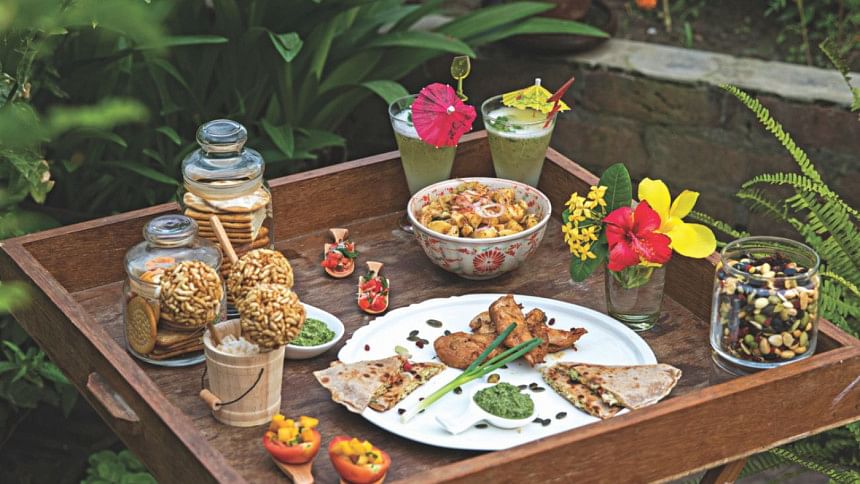Ramadan for chronic conditions

Muslims worldwide observe an absolute fast from dawn to sunset without any food or drink. Ramadan can be a challenging time for many people, as their usual eating routine changes significantly. But it is especially important for people with chronic conditions to be aware of the special dietary needs that fasting can entail for them.

CARDIAC PATIENTS IN RAMADAN
It is important for patients with heart conditions to carefully plan the food consumed to ensure they enjoy a healthy Ramadan. The impact of fasting during Ramadan on patients with stable cardiac disease is minimal and does not lead to any increase in acute events. Most patients with stable cardiac diseases can fast safely. Most of the drug doses and their regimen are easily manageable during this month and may not need to be changed. Ramadan fasting is a healthy non-pharmacological way to improve cardiovascular risk factors.
However, patients with decompensated heart failure or those requiring large doses of diuretics are strongly advised not to fast, particularly when Ramadan falls in summer. Patients with controlled hypertension can safely fast. However, patients with resistant hypertension should be advised not to fast until their blood pressure is reasonably controlled. Patients with recent myocardial infarction, unstable angina, recent cardiac intervention or cardiac surgery should avoid fasting. Physician advice should be individualised.
Patients with heart problems should pay attention to the amount of salt they consume during Ramadan as the traditional Iftar items are rich in salt. High salt consumption is a major threat as it leads to high blood pressure and increases thirst. Raised blood pressure can lead to water retention and negatively affect heart health.
Diuretics are better avoided during fasting, especially in hot climates, or should be administered in the early evening. Weight changes during Ramadan are short lasting, and patients gradually return to pre-Ramadan status. Although Ramadan provides a chance to lose weight, structured and more consistent lifestyle modifications are still necessary in achieving weight loss.
Fibre is essential to prevent constipation, control blood-sugar levels, reduce high cholesterol levels, and increase satiety levels. It's easy to meet our fibre requirement during this month: at the early-morning meal (sehri) and for the evening meal (iftar) we can include pasta or brown rice with lentils and vegetables, or a curry with whole-wheat ruti, dates etc high fibre food. Haleem, a common lentil-based soup eaten during this month, is a great source of fibre and other nutrients, therefore filling up on this dish will provide you with plenty of nourishment. But we should keep in mind that the cooking process should maintain proper hygiene. In that case homemade food is much more preferable.
Consumption of unhealthy saturated fats (full-cream dairy, chicken skin, visible fats on meat, coconut, coconut milk, margarines, butter, ghee, coffee creamers and palm kernel oil) and trans fats (commercially fried foods, biscuits, cakes, crackers and packet chips) raise the risk for cardiovascular disease by increasing bad cholesterol levels and lowering good cholesterol levels. Rather choose lower-fat or fat-free options to prepare various dishes, for example skim or low-fat milk for milkshakes, low-fat evaporated milk instead of cream, or low-fat cottage cheese instead of sour cream.
Good fats include monounsaturated (avocado, olives, olive oil, almonds, peanuts, pecan nuts, cashew nuts) and polyunsaturated fats (oily fish, seeds, soft tub margarine and vegetable oils). By adding a handful of nuts and seeds to your early morning or evening meal, you can be assured of some good, heart-healthy fats. For example, eat fish instead of red meat because fish does not contain harmful fats. It contains a healthy fat called Omega 3 which is important for a healthy heart and the arteries. Use good vegetable oils like olive oil instead of other fats as they contain omega fats which are good for the arteries. Eat vegetables and fruit daily - fresh or cooked - because they contain vitamins and minerals and high amounts of fiber. Heart patients are also advised to eat brown bread instead of white bread.

Fluid intake is often neglected or forgotten during this busy month. It's essential to ensure adequate fluid intake. Low fluid levels can cause dehydration, headaches, low blood pressure or constipation.
Cooking methods obviously influence the tastiness of a dish. At the same time, it's not recommended that foods be cooked unhealthily by deep frying or using plenty of oil or ghee (clarified butter). Better options are to bake savouries and for other dishes to stir fry, dry fry, grill or sauté. Curries should also be made using minimal amounts of vegetable oil.
Along with dietary administration, light exercise is also needed. By performing the Tarabih prayers regularly the exercise part can be considered covered.
DIALYSIS PATIENTS IN RAMADAN
Dialysis patients should also pay attention to the food they eat to stay healthy when fasting.
Patients on dialysis can face health problems during Ramadan if they fail to follow a healthy diet and fast correctly. It is important that they are aware of what constitutes a healthy diet and what does not. Dialysis patients who are unsure of the best foods to eat should consult their dietician for advice before fasting. Eating enough protein each day at Iftar and Sehri is a must. Follow the basic rules of good nutrition and consume fluids only within the recommended limits, i.e. around one litre to one-and-a-half litres per day to prevent dehydration. It is also important to ensure that food is not too salty to avoid high blood pressure and excessive thirst when fasting. Care should be taken to avoid potassium-rich foods like dates, bananas, oranges, mangoes, tomatoes, potatoes and okras, which are otherwise frequently eaten during Ramadan.
Try to eat non-fatty dishes and ensure food is cooked in a healthy way by boiling and grilling rather than frying. Consume sources of calcium in the required quantities

DIABETIC PATIENTS IN RAMADAN
The dietary patterns are completely different during Ramadan, which is why diabetics and pre-diabetics need to be extra careful in planning a balanced diet. For people with diabetes, instead of taking 5-6 meals, it is reduced to 2 or 3 meals in 24 hours. During Ramadan, the gap between meals ranges from 12 to 15 hours, which can be a problem since diabetics are advised to have regular and timely meals. So the first step for a diabetic patient before fasting should be to consult his or her clinicians along with dietician who will be able to guide properly whether it is safe to fast. Fasting results in metabolic changes and hence it is important to adjust the diabetes management plan. Patients with Type 1 diabetes who have a history of recurrent hypoglycaemia are at a higher risk if they fast. Hypoglycaemia and hyperglycaemia may also occur in patients with Type 2 diabetes but less frequently and with less severe consequences as compared to patients with Type 1 diabetes. Hypoglycaemia is a result of a sudden fall in blood sugar levels causing seizures and unconsciousness. Hyperglycaemia is the result of an inordinate increase in blood sugar levels causing blurry vision, headaches, increased fatigue and thirst.
Good blood sugar control can be accomplished by people with diabetes by maintaining appropriate diets. It is suggested that during Ramadan similar general dietary guidelines should be followed as those throughout the year.
The sehri meal should be taken as late as possible, and include foods that are rich in complex carbohydrates, such as whole grain bread or vegetables, oats, brown rice and fruits with skin. Complex carbohydrates take more time to digest, absorb and ingest, keeping the body fuelled for more hours throughout the fasting day.
The traditional sugar drinks and foods rich in fat taken at iftar should be avoided. Starting the meal with a small amount of food that is rich in simple carbohydrates and can be absorbed quickly by the body --such as sugar-free and decaffeinated drinks, dates or milk-- is recommended to avoid dehydration.
Iftar should contain whole wheat flour chapatis, vegetables and a meat dish. Salads increase the fibre intake. Chickpeas and haleem are two good items for diabetic patient as both of these are rich in fibre. Avoid deep fried foods such as parata, puri, samosa and pakoras. A glass of milk or fruit at bedtime will maintain normoglycaemia till sehri.
Frequent monitoring of blood sugar level is key to safe fasting for diabetics, even though it is tough for patients to monitor their blood sugar level multiple times through the day.
Do not sleep soon after dinner; allow an interval of 2 hours. Avoid complex carbs right before bedtime. One of the main reasons behind Ramadan fasting is to learn to curb our desires and tune in to Allah and pay attention to the body's signals and understand hunger-- so do not overeat.
This is the second segment of the two part series dealing with Ramadan and diet. This time we have focused on various common chronic conditions and dealing with those during Ramadan. The previous week’s article included the general trend, the dos and don'ts.
In our last upcoming segment, we will deal with how one can make best use of Ramadan in quitting vices like smoking, chewing tobacco, etc.
Photo: LS Archive/Sazzad Ibne Sayed





Comments